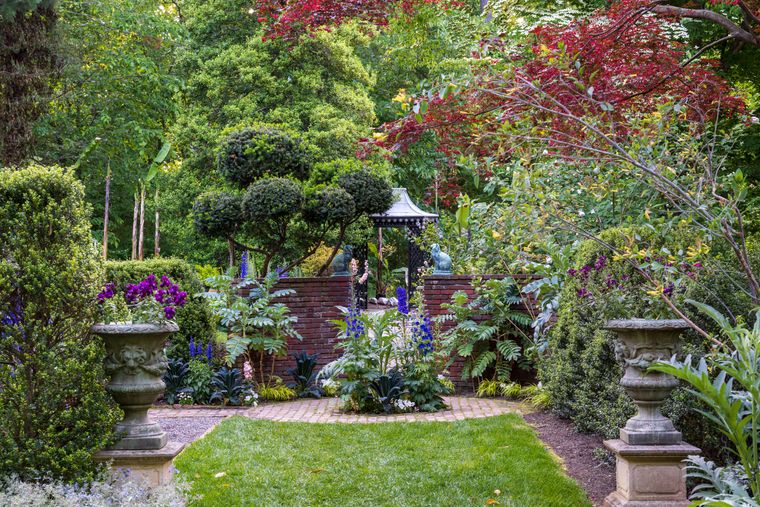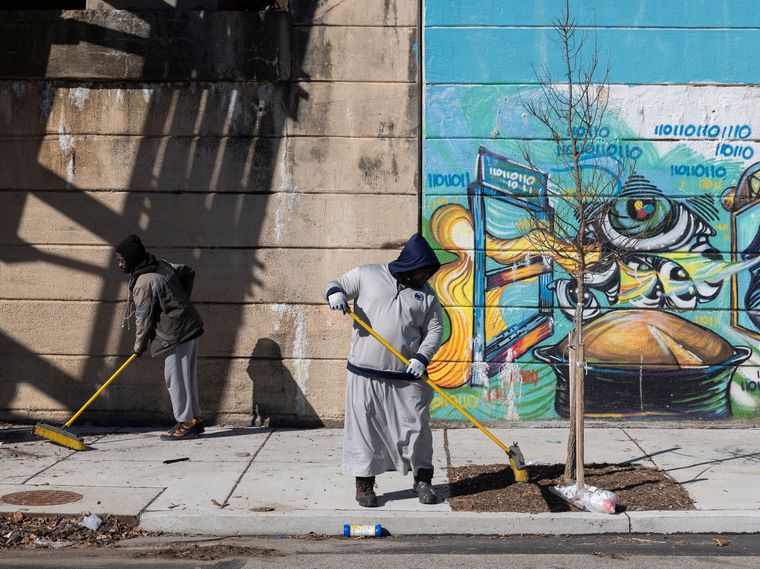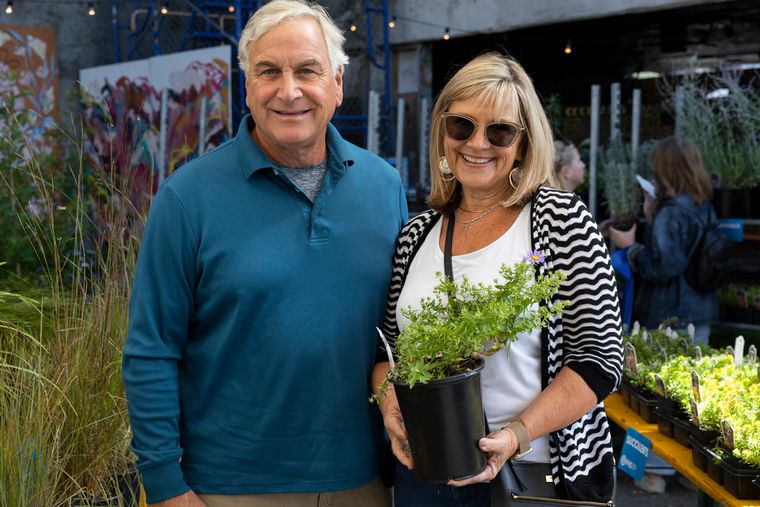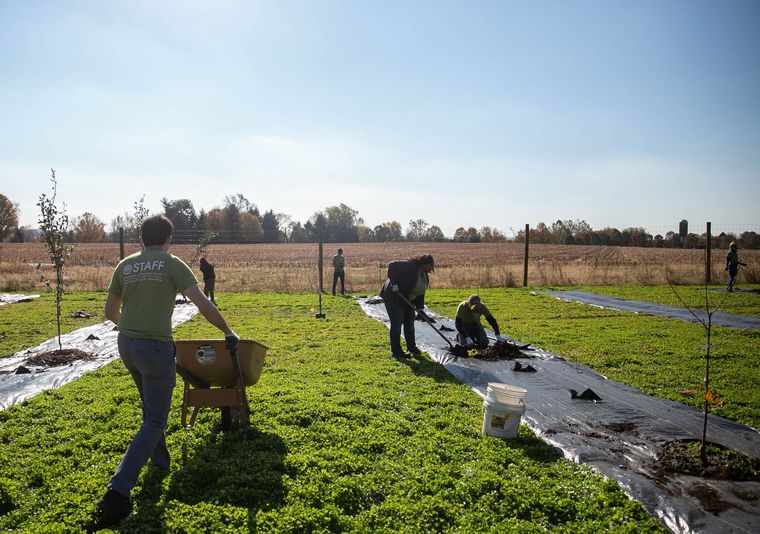



PHS Receives Capstone Award to Expand Urban Agriculture Work
phs now

Washington - Seven botanic gardens, including The Pennsylvania Horticultural Society (PHS), are receiving support to build capacity and leadership in urban agriculture through a partnership of the United States Botanic Garden (USBG), the American Public Gardens Association (Association), and Chicago Botanic Garden (CBG). The Urban Agriculture Resilience Program Capstone program will award each garden $50,000 along with one-on-one mentoring support to sustain and institutionalize each garden’s urban agriculture work. Additionally, the group will meet quarterly as a cohort for training throughout 2023, including a two-day, in-person training at CBG’s Windy City Harvest program.
With these funds, PHS will expand on its existing programming at the PHS Green Resource Center at Farm Park, a food gardening resource center and urban farm located in Norristown Farm Park. These funds will help the farm expand its intern education program, allowing the farm to grow more food that will be shared with key partners in the region. Funds will also support the growth of PHS’s Food as Medicine Program, a program that teaches participants how to use food as medicine to promote long term health via nutrition education, farm-grown organic produce, cooking lessons and monitoring of progress.
“Thanks to the Urban Agriculture Resilience Program Capstone program, PHS will be able to teach more people about the joy and health benefits of gardening and the importance of urban agriculture. We are thrilled to be part of an incredible group of peers that are making a mark in the horticulture field,” said Justin Trezza, PHS Director of Garden Programs.
Recipients of the Capstone awards are:
- Atlanta Botanical Garden, Georgia
- Desert Botanical Garden, Arizona
- Garfield Park Conservatory and Gardens, Illinois
- Minnesota Landscape Arboretum, Minnesota
- Pennsylvania Horticultural Society, Pennsylvania
- Queens Botanical Garden, New York
- University of Michigan Matthaei Botanical Garden and Nichols Arboretum, Michigan
“We are happy to expand the Urban Agriculture Resilience Program with these capstone awards, piloting a new component focused on growing urban agriculture capacity and leadership in the public garden community,” said Dr. Susan K. Pell, USBG executive director. “We look forward to seeing even greater community impacts from these gardens through urban agriculture education, engagement, and food growing.”
“The Association is honored to continue our partnership with USBG and CBG through the Urban Agriculture Resilience Program,” said Michelle Provaznik, CEO of the American Public Gardens Association. “We are excited to see the long-term impacts of these capacity building awards on our member gardens and the important work they do for their communities.”
“We are excited to collaborate with USBG and the Association to support the recipients of the Capstone awards,” said Kelly Larsen, Associate Vice President of Community Engagement for Windy City Harvest, Chicago Botanic Garden. “It is critical that public gardens continue taking the lead to support place based, collaborative urban agriculture solutions that grow the next generation of farmers and food system leaders. Urban agriculture programming, focused on partnerships, provides accessible job training opportunities for local communities to grow equitable food access, employment opportunities, community health and local food system economies.”
The Urban Agriculture Resilience Program began in 2020 as a way for the USBG and the Association to assist public gardens to continue urban agriculture and food growing programs facing funding and capacity challenges due to COVID-19. The program was expanded in 2021 and 2022 to support community engagement in urban agriculture education and food growing through collaborations between public gardens and local community organizations. Since its inception, the program has provided financial awards to 80 urban agriculture projects in 30 states and Washington, D.C.
The USBG and CBG have collaborated for five years to build capacity in urban agriculture at public gardens and partner organizations through development of an Urban Agriculture Toolkit and related trainings online and in person around the country.
Learn more about previous awardees at www.USBG.gov/UrbanAg.
###
About United States Botanic Garden
The United States Botanic Garden (USBG) is the oldest continuously operating public garden in the United States, established by Congress in 1820. The U.S. Botanic Garden inspires people to appreciate, study, and conserve plants to enrich society locally and globally. With over a million visitors annually, the USBG strives to demonstrate and promote sustainable practices. It is a living plant museum accredited by the American Alliance of Museums and Botanic Gardens Conservation International. www.USBG.gov
About American Public Gardens Association
The American Public Gardens Association is the leading professional organization for the field of public horticulture. We advance the field by encouraging best practices, offering educational and networking opportunities, and advocating on behalf of our members, our programs and public gardens worldwide. We work together with our members and others to strengthen and shape public horticulture, providing the tools and support industry professionals need to better serve the public while preserving and celebrating plants creatively and sustainably. Since 1940, we have been committed to increasing cooperation and awareness among gardens. Our members include more than 600 institutions, spanning 49 states, the District of Columbia, Canada, and 20 countries. Our members include, but are not limited to, botanic gardens, arboreta, zoos, museums, colleges and universities, display gardens, and research facilities. www.publicgardens.org
About Chicago Botanic Garden
The Chicago Botanic Garden, one of the treasures of the Forest Preserves of Cook County, is a 385-acre living plant museum featuring 28 distinct gardens and four natural areas. With events, programs and activities for all ages, the Garden is open every day of the year. Located at 1000 Lake Cook Road in Glencoe, IL, the Garden is smoke free. Opened to the public in 1972, the Garden is managed by the Chicago Horticultural Society, accredited by the American Association of Museums and a member of the American Public Gardens Association (APGA).
###